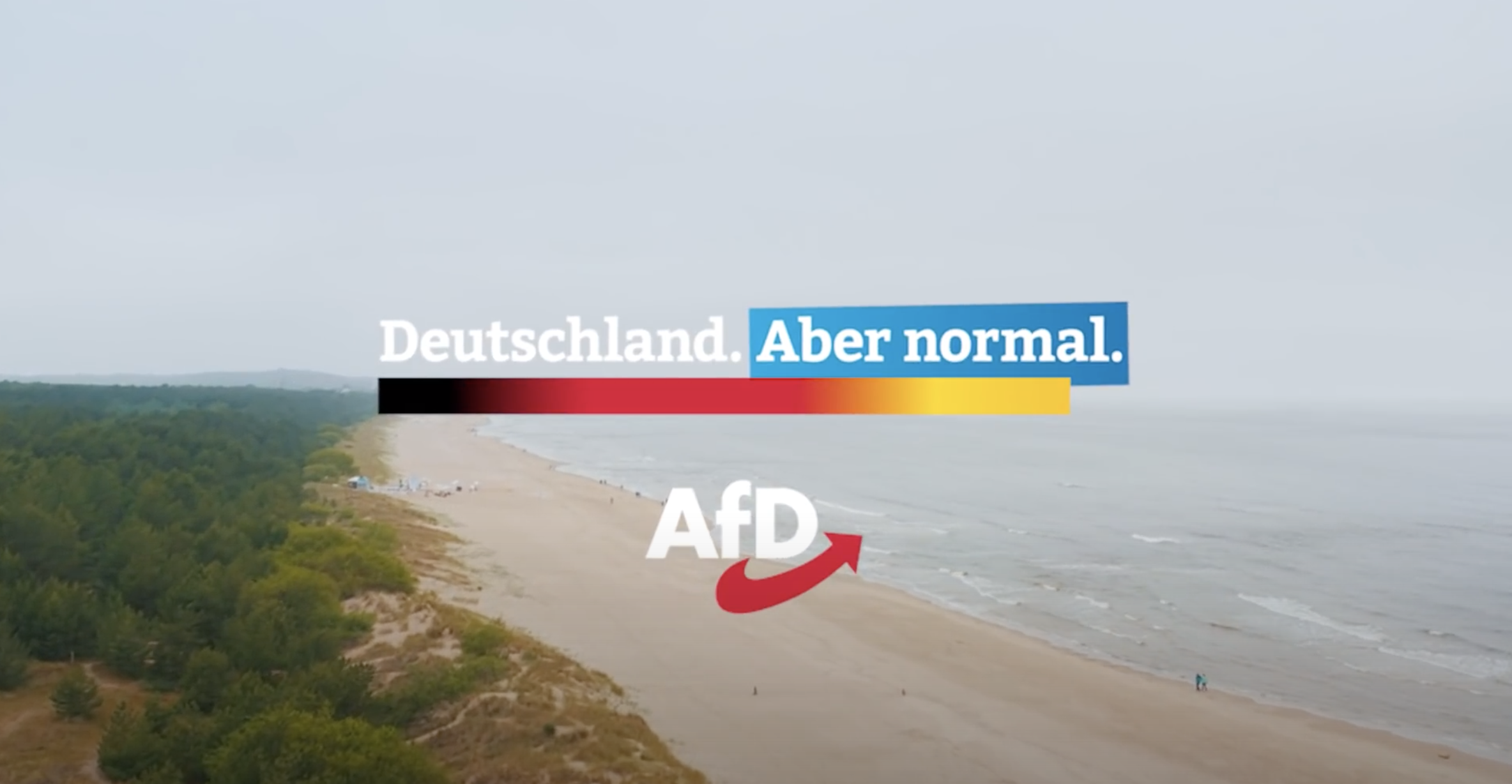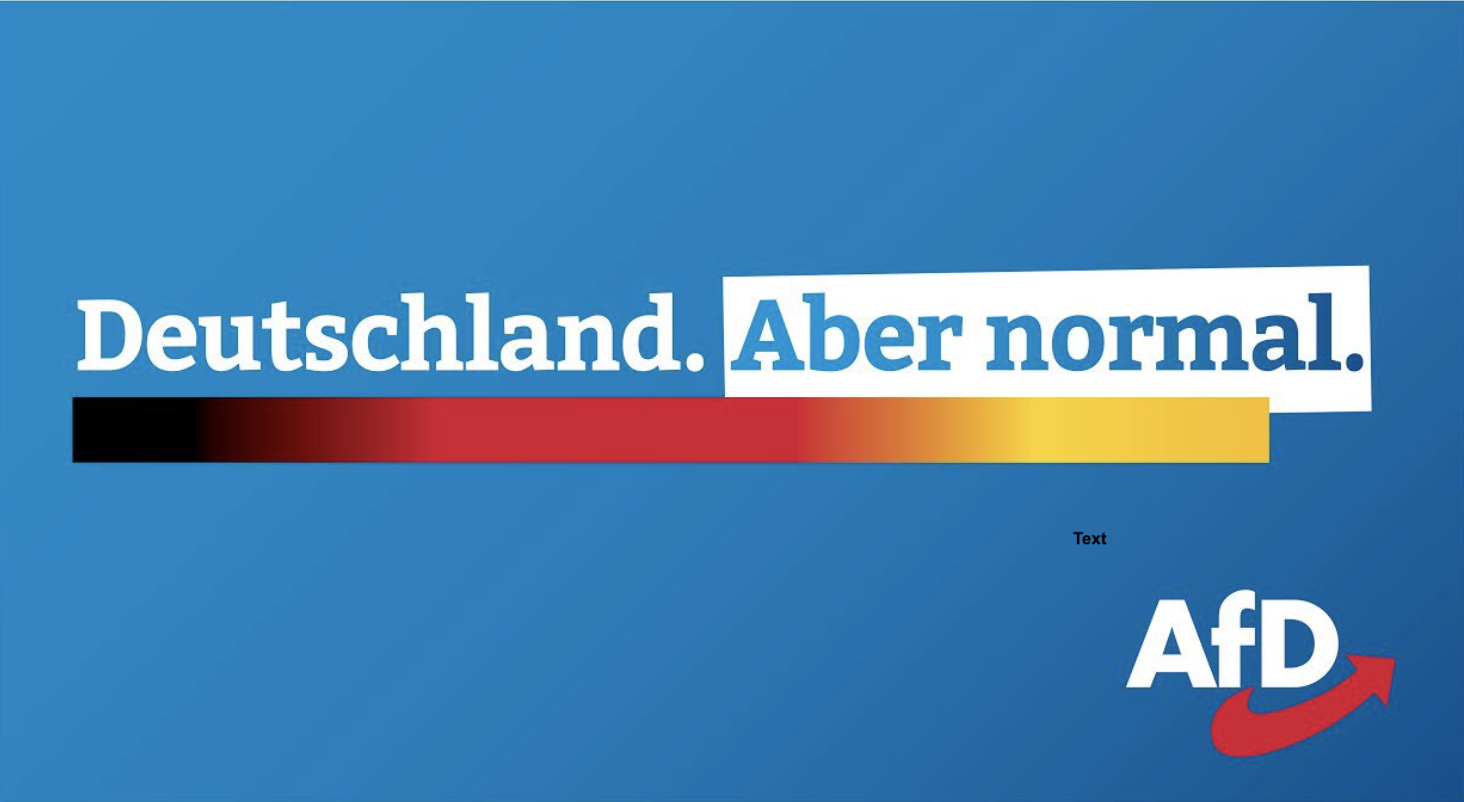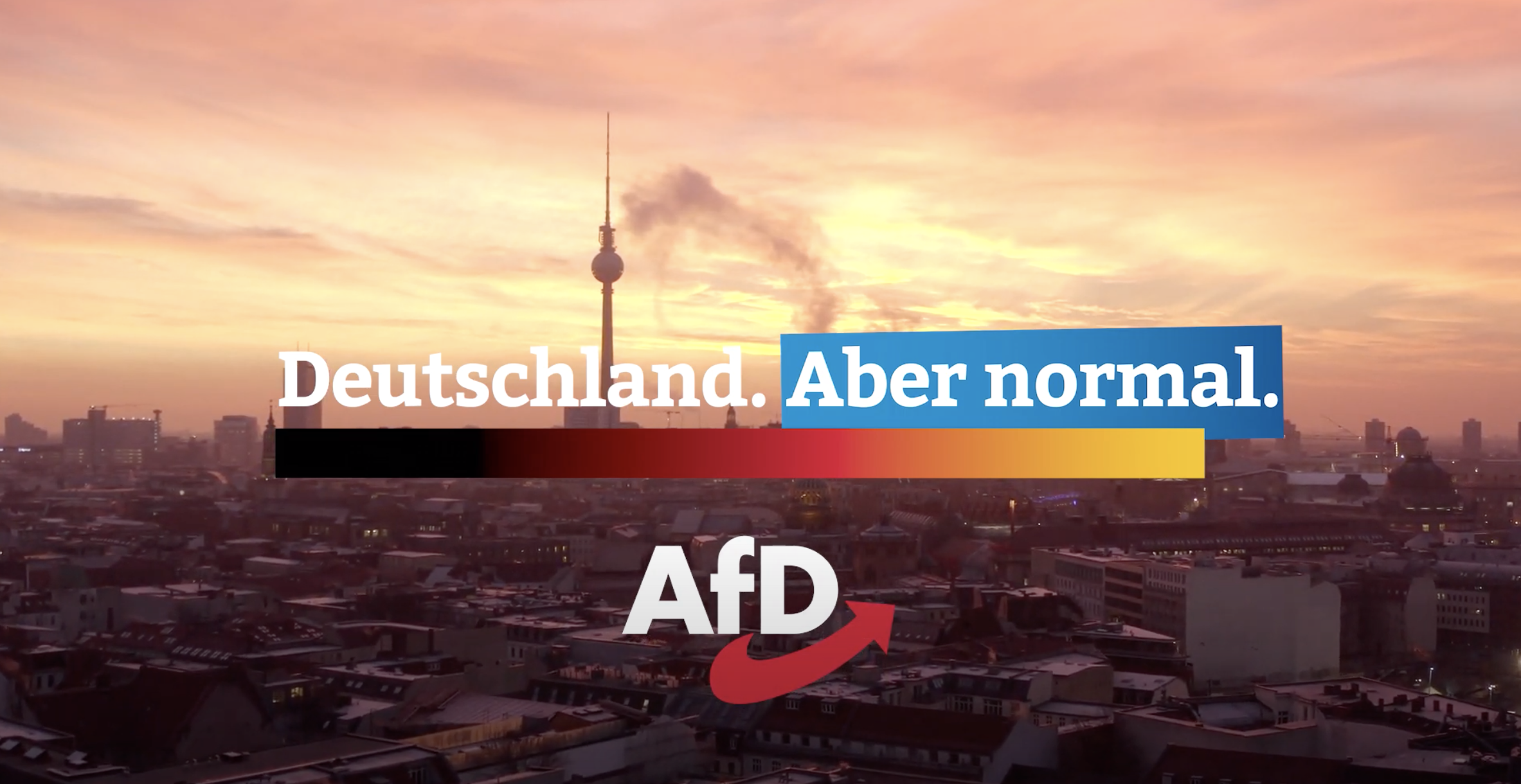Bourgeois, normal, far-right.
Right-wing politicians are countering the commonplace right-wing extremist image of bald men in springer boots with a new image. Propagating normality is one of the most important tactics of right-wing politics in some European countries. Isn't right-wing extremism actually anything but normal?
They are conservative, right-wing populist and, according to the German constitution, partly classified as extreme right-wing. Parties like the AfD, FPÖ or Rassemblement National aim above all to reach the so-called "middle class". Their strategy is to present themselves as normal politicians who appeal to all citizens. However, their right-wing populist and sometimes extremist ideas are by no means lost in this process.
"If I don't want every crook to have an open day with us 365 days a year, then that's not right-wing extremism, but normal." FPÖ leader Herbert Kickl's demand at a party conference in the summer of 2021 is clear: back to normality in his own country - “Austria normal”. But what is Herbert Kickl longing for when he dreams of normality?
Right-wing populism: Right-wing populists see themselves as fighters for the people, who they see as being divided into two groups. The "pure" people are opposed by a corrupt elite that is corrupt to the core. Right-wing populism uses democratic methods rather than right-wing extremism.
Right-wing extremism: Right-wing extremism is a collective term for political ideologies that are primarily oriented towards ethnic affiliation. Right-wing extremists deny the right of all people to social and legal equality and implement their ideologies with an anti-democratic, anti-pluralistic and authoritarian understanding of society.
Normal cover
The right-wing is the new centre - at least that is what right-wing parties like the FPÖ suggest by constantly equating their actions with normality. Right-wing ideas are taboo for many people. However, for the FPÖ they are now "normal". The party is shifting political positions and drawing new boundaries. Statements that are actually not accepted by the majority of society are thus slowly being made acceptable.
In April 2019, an FPÖ politician compared people to sewer rats in a poem. (Link) Two politicians of the same party are active in Facebook groups glorifying Nazis. (Link) Contacts with neo-Nazis come to light. A number of connections between various FPÖ party members and members of the extra-parliamentary Identitarian movement* (Link) – which is classified as right-wing extremist and currently banned in Austria – are repeatedly being uncovered. According to media reports, the leader of the Identitarian movement referred several times to statements made by the FPÖ during the current legal proceedings concerning the banning of the group. While doing so he tried to suggest that the political positions held by his right-wing group are indeed of a democratic nature. There hasn’t been much of an outcry. The party still exists, currently in all nine Austrian provincial parliaments. After all, the FPÖ still characterises itself as: “not right-wing extremist, but normal.”
*Identitarian movement: The so-called Identitarian movement is a nationalist-ethnic oriented group which, according to their own statements, represent and propagate ethnopluralism. Therefore, for them, Europe as a homogeneous culture is in danger, especially due to an apparently threatening Islamisation.
Normal, that is simply beautiful
"Isn't normal what we actually lack nowadays?" asks AfD politician Leif-Erik Holm in a campaign film for the 2021 German federal election. The short clip shows apparently happy, heteronormative families in a confined space. Shortly after, it cuts to empty restaurants, followed by references to mandatory masks and 2G regulations. "The world around us has become so crazy" the voiceover continues. The clip concludes with the statement: "Normal, it's just beautiful." Parties like the AfD have no desire for the "new" pandemic normality and allude to an "old" normality. Better without masks and social-distancing and better off too without this pandemic.
Normality fetish
Parties propagating normality, such as the AfD, want to return to normality – but by “normality” they certainly do not mean only the year 2019. Depending on the ideological stance, it is more likely that they mean the Nazi era, the Weimar Republic or a life before the hated '68 revolution. For example, the FPÖ posted on Facebook in July 2021: "Anyone who wants red-white-red instead of rainbows is not right-wing extremist, but normal."
Such statements legitimise discriminatory ideas. This self-legitimation is a crucial point for the normalisation strategies of right-wing parties. By constantly "normalising" their own actions, AfD, FPÖ and Co. set their own norms. What used to be the natural German family unit is now the normal neighbour.
Right-wing ideologies should thus finally become socially acceptable and no longer cause trouble. At least not at first glance. If you want to appear normal, you also have to behave normally. In big cities and on social media, hip activists in mainstream youth cultures propagate seemingly normal and yet right-wing extremist slogans. In rural regions, they let people dream of normal village life without refugee shelters.
Normality: exclusion and suffering
When right-wing extremist parties dream of normality, they do not mean harmless advertising campaigns about the homely countryside. Nor do they mean finally being able to shop without a mask again. They mean exclusion, and they mean it aggressively. No one should defy their norms. No one is supposed to be "abnormal". They know what the people's needs are, they want to belong. But normal is a construct. The striving for right-wing normality has led – especially in Germany – to unimaginable suffering in the last century.
The French "Front National" is changing its name to Rassemblement National to be more socially acceptable. The AfD now operates under the slogan: "Germany. But normal", and the FPÖ is "not right-wing extremist, but normal" – all of these examples are attempts to place ethnic-nationalist* structures at the heart of society and thus make room for structural discrimination against social minorities and those who think differently. Detecting right-wing extremist strategies is not always easy; they can disappear into the natural order. Especially when it comes to delegitimising women, queer people or people who appear foreign. And once again it becomes clear: the term “normal” has become dangerous.
*Ethnic nationalism: Ethnic nationalism is a racist concept according to which the world is divided into peoples based on hierarchically ordered ethnic-biological circumstances. The ultimate goal is to protect the people from external influences and internal decay.




